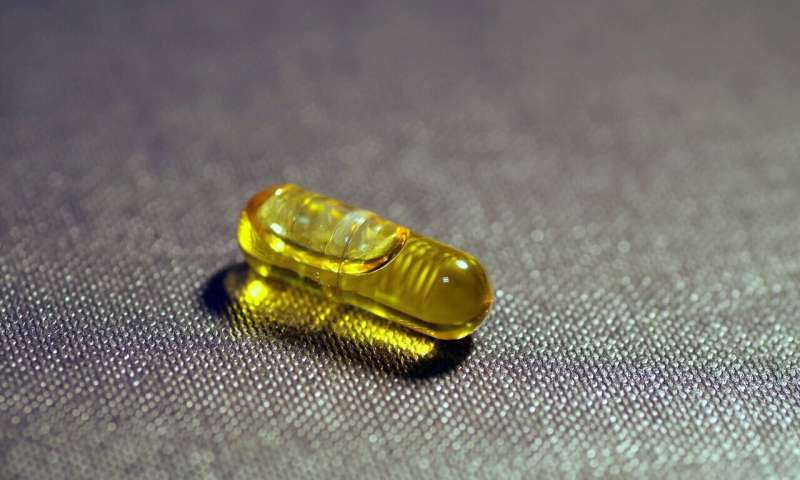
Daily vitamin D supplements do not seem to prevent the development of type 2 diabetes in people already at high risk of the condition, finds a trial from Japan published by The BMJ today.
The results show that supplements had no clinically meaningful effect in high risk adults, but suggest there may be a benefit for people with insufficient insulin secretion, although this finding remains unclear.
Type 2 diabetes affects around 480 million people worldwide, and is predicted to increase to 700 million by 2045. Another half a billion people have impaired glucose tolerance or pre-diabetes (higher than normal blood sugar levels, that if left untreated, can develop into type 2 diabetes).
Weight loss and exercise can lower the risk of progression to type 2 diabetes, but are difficult to sustain, so new strategies are needed to tackle the problem.
Some studies have shown that vitamin D deficiency is associated with an increased risk of future diabetes, but trials of vitamin D supplements for preventing type 2 diabetes show inconsistent results.
To address this knowledge gap, researchers therefore set out to assess whether eldecalcitol (an active form of vitamin D used to treat osteoporosis in Japan) could reduce the risk of developing type 2 diabetes among people with impaired glucose tolerance.
Their findings are based on 1,256 Japanese adults with impaired glucose tolerance recruited from three hospitals in Japan between June 2013 and August 2019. Their average age was 61 (range 30-78) years, 46% were women, and 59% had a family history of type 2 diabetes.
Participants were randomly assigned to receive either a standard daily dose of eldecalcitol (630 participants) or placebo (626 participants) and were assessed for diabetes every three months over a three-year follow-up period.
During this period, the researchers found no meaningful differences between groups in those who developed diabetes (12.5% in the eldecalcitol group and 14% in the placebo group) or whose blood sugar levels returned to normal (23% in the eldecalcitol group and 20% in the placebo group).
However, after adjusting for 11 potentially influential factors, including age, sex, blood pressure, body mass index, and family history of diabetes, the results suggested that eldecalcitol might prevent type 2 diabetes in pre-diabetic patients with insufficient insulin secretion. But this finding remains unclear and the researchers say further work is needed before any firm conclusions can be made.
They did, however, find a significant increase in both lower back and hip bone mineral densities among those taking eldecalcitol compared with placebo.
No significant difference in serious adverse events was seen between the two groups.
The researchers acknowledge some uncertainties, such as whether the dose of eldecalcitol used was appropriate for preventing diabetes, and whether the results apply to all ethnicities. Nevertheless, this was a large trial with regular follow-up and high adherence to treatment, suggesting that the findings are robust.
As such, they say, “Although treatment with eldecalcitol did not significantly reduce the incidence of diabetes among people with pre-diabetes, the results suggested the potential for a beneficial effect of eldecalcitol on people with insufficient insulin secretion.” And they call for further research to determine whether vitamin D is beneficial to people with pre-diabetes.
This new trial was well conducted and results are consistent with two other recent trials, says Tatiana Christides at Queen Mary University of London in a linked editorial.
However, several questions remain, she writes, including whether vitamin D supplementation may be more effective for particular populations, and whether longer duration of treatment or younger age at initiation might be more beneficial.
Source: Read Full Article